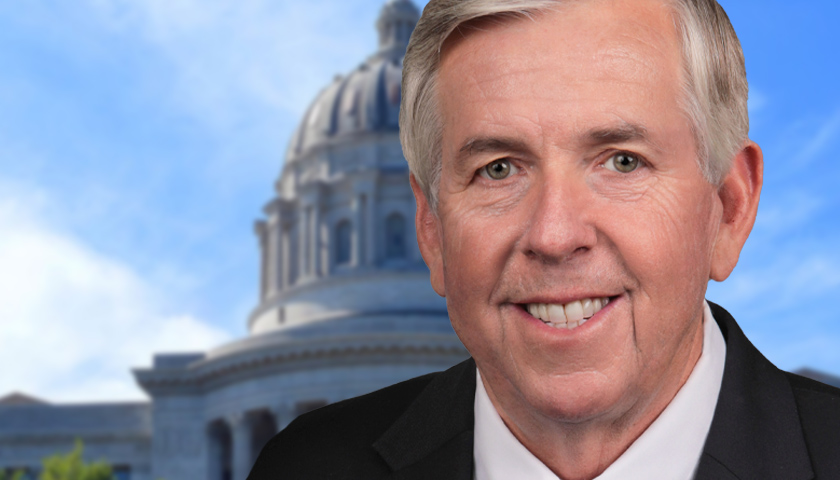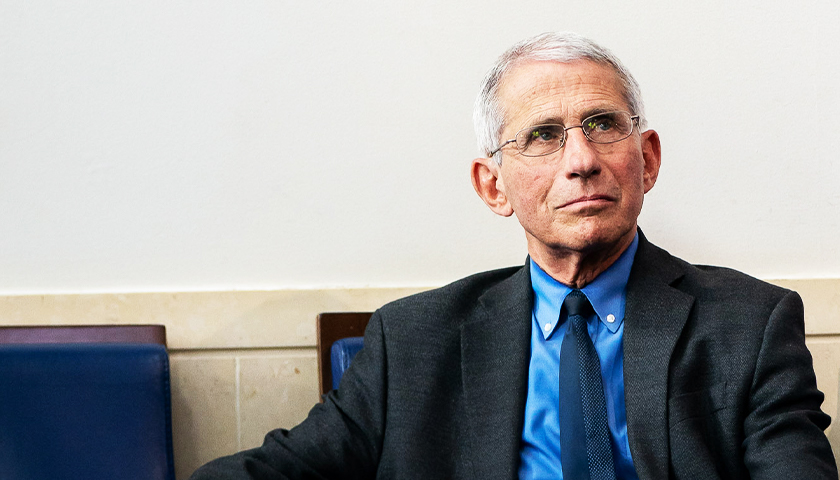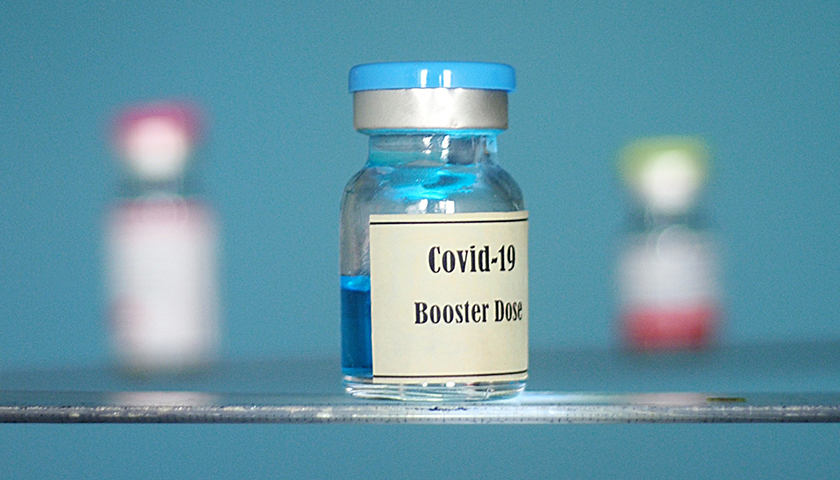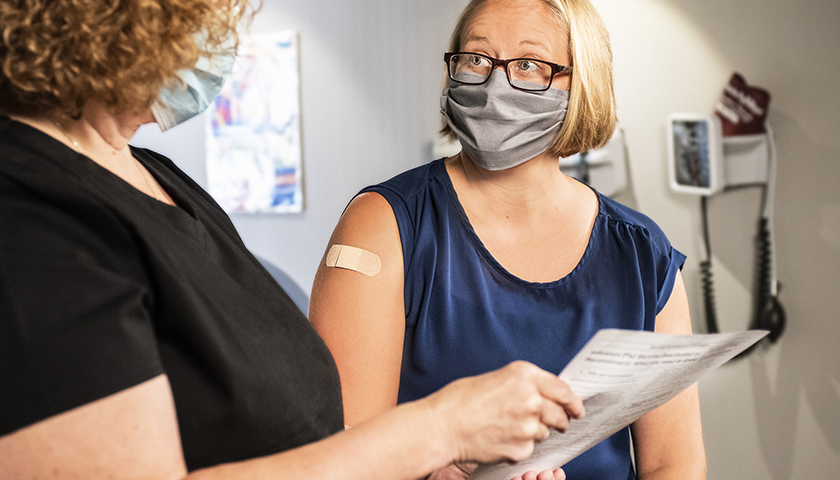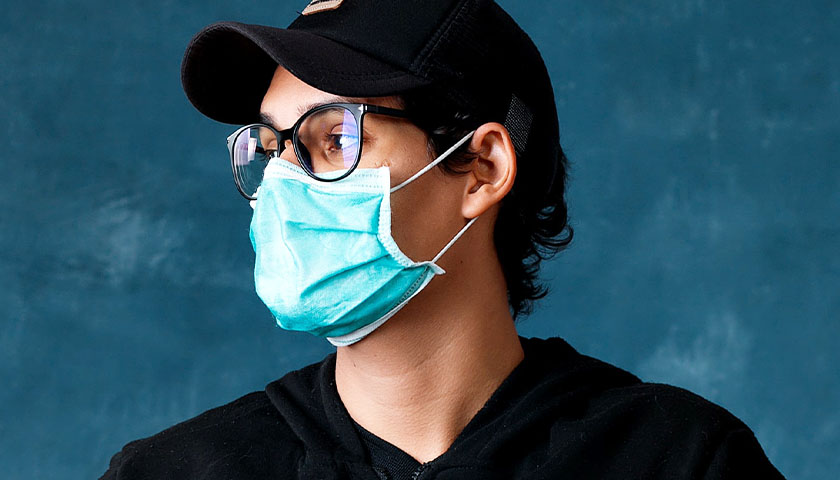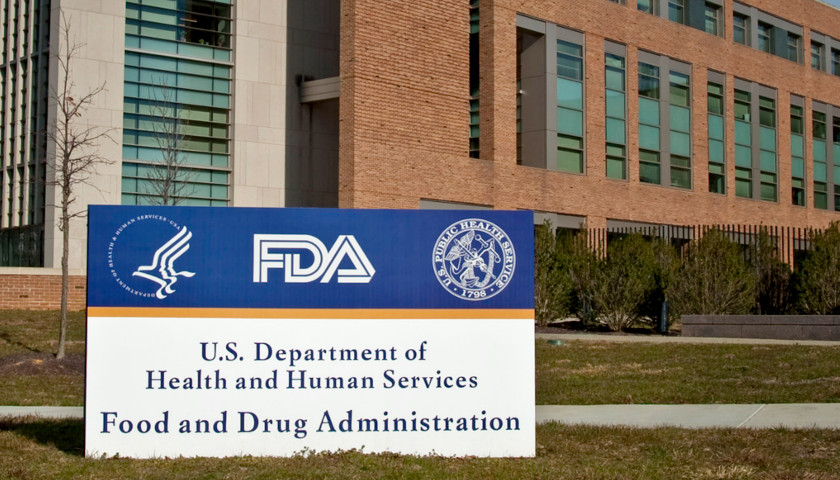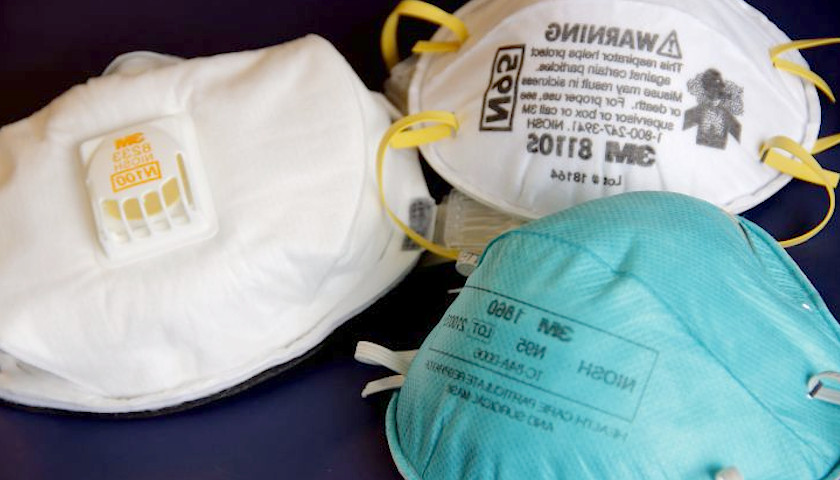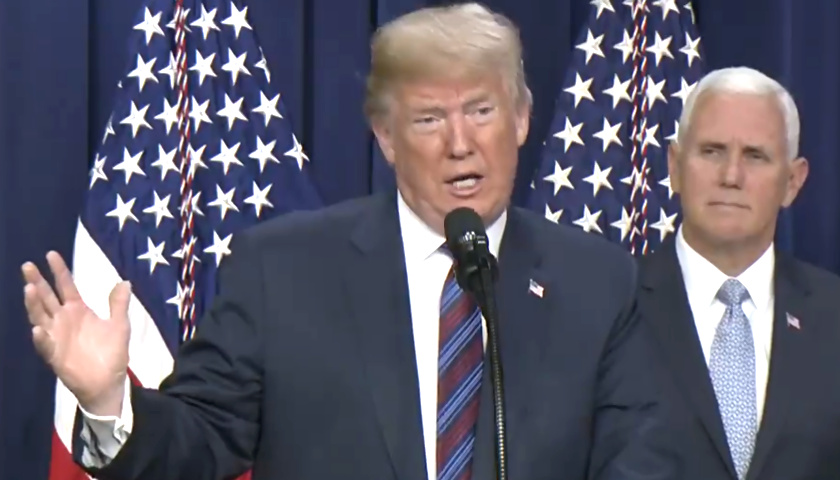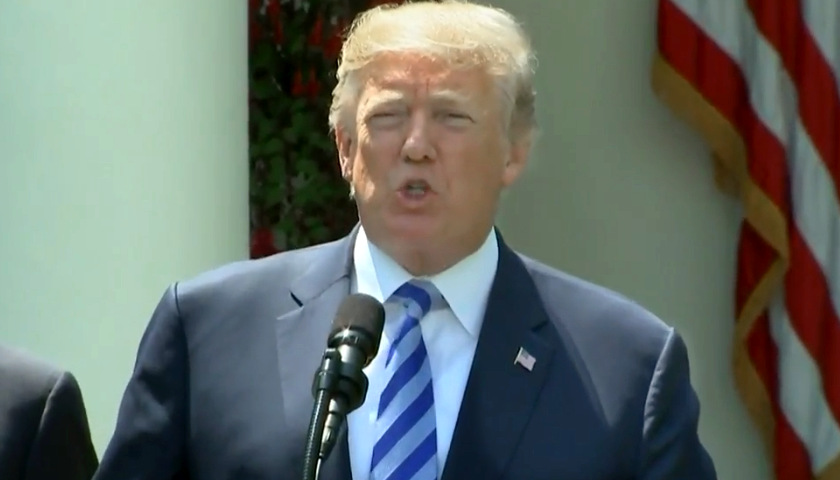In early October, my alma mater made headlines after it decided to fire chemistry professor Dr. Maitland Jones Jr. after 82 of his students signed a petition noting that his organic chemistry class was “too hard.” The students accused Jones of purposely making the class difficult, citing that their low scores negatively impacted their “well-being,” and their chances of getting into medical school. Instead of evaluating the rigor and substance of Jones’ curriculum, NYU justified its hasty action by noting the class’s unfavorable student reviews. This type of judgment would never pass in the fields of architecture, aerial engineering, or even the food service industry; why is it permissible here?
Read MoreTag: medicine
Minnesota Senate Passes Nurse Licensure Compact Bill
Minnesota taxpayers will pay $157,000 in fiscal year 2023 from its special revenue fund to the Board of Nursing to join the Nurse Licensure Compact if SF 2302 becomes law.
The base of the appropriation is $6,000 in fiscal year 2024 and $6,000 in fiscal year 2025, according to the bill, which the Senate passed in a 35-32 vote Monday. A motion to re-refer the bill to the Civil Law and Data Practices Policy committee was struck down in a 31-36 vote.
Read MoreBill Proposes Minnesota Join 19 States with Co-Pay Caps for Insulin
Two Minnesota DFL legislators announced a bill to cap state-regulated health plans’ co-pays for certain prescription drugs at $25 per month.
The bill Rep. Michael Howard, DFL-Richfield, and Sen. Erin Murphy, DFL-St. Paul, if passed, HF 3592, would apply the caps to drugs and medical supplies that treat severe allergic reactions and chronic conditions, such as diabetes and asthma. The bill would become effective in 2023.
Read MoreGroup ‘White Coats 4 Black Lives’ Aims to Dismantle Racism in Medicine and Dentistry, Issues ‘Racial Justice Report Card’
On Jan. 26, the group “White Coats 4 Black Lives,” an organization with a mission to “dismantle racism in medicine and fight for the health of Black people,” gave the University of Rochester’s School of Medicine & Dentistry its “Racial Justice Report Card.”
The result was nine “F” grades based on campus activity and administration policies during the 2020-2021 academic year.
Founded in 2014, White Coats 4 Black Lives has 75 chapters at universities across the nation and pushes the Black Lives Matter agenda within medical schools.
Read MoreAfter Missouri Gov. Parson Lets Emergency COVID Orders Expire, Pandemic Task Force Asks for Reinstatement
Days after Republican Gov. Mike Parson let emergency COVID-19 orders expire on Dec. 31, Missouri’s Department of Health and Senior Services (DHSS) reported significant increases in COVID-19 infections.
The DHSS dashboard on Monday showed 35,067 new confirmed cases during the last seven days, an 88.8% increase compared to the previous seven-day total. The seven-day positivity rate was 27.3%, an increase of 11.7 percentage points compared to the previous seven-day total. Many health organizations and agencies consider a positivity rate higher than 5 or 10% to be a predictor of rampant spread of sickness, resulting in increased hospitalizations and deaths.
“Thanks to the effectiveness of the vaccine, widespread efforts to mitigate the virus, and our committed health care professionals, past needs to continue the state of emergency are no longer present,” Parson said in a statement on Dec. 30, 2021. “Over the last 22 months, we have coordinated with local, state, and private partners to mitigate COVID-19 and work towards returning to normalcy. We all now know how to best fight and prevent serious illness from this virus. The State stands ready to provide assistance and response, but there is no longer a need for a state of emergency.”
Read MoreCommentary: Dismissals of Safe Outpatient Drugs Cause Needless COVID Deaths According to Doctors
For the first nine months of the COVID-19 pandemic, there were no officially approved outpatient treatments for combating the disease. From March 2020, when the virus first emerged in the United States, until that November, when the Food and Drug Administration authorized emergency use of monoclonal antibodies, health authorities advised that the infected do little but quarantine themselves, drink plenty of fluids and rest unless hospitalization was necessary.
During those chaotic final months of Donald Trump’s presidency, the medical establishment expressed extreme caution regarding outpatient treatments for the virus, and these warnings were amplified by major media hostile to the president, for example when he touted the anti-malaria medicine hydroxychloroquine.
Although an estimated 12% to 38% of prescriptions are written for FDA-approved drugs used “off-label” (including Botox and Viagra), Dr. Anthony Fauci, director of the National Institute of Allergy and Infectious Diseases, declared early on that providers should dispense only medicines proven to be safe and effective for COVID patients through “randomized, placebo-controlled trials.” These can take months or years to conduct, and often at great cost.
Read MoreNewly Released Documents Show Fauci Was ‘Untruthful’ About Wuhan Coronavirus Research, Infectious Disease Expert Says
A trove of newly released documents detailing U.S.-funded coronavirus research in China prior to the COVID-19 pandemic shows that Dr. Anthony Fauci was “untruthful” when he claimed that his agency did not finance gain-of-research in Wuhan, an infectious disease expert said Sunday.
Documents published by The Intercept on Sunday show that Fauci’s organization, the National Institute of Allergy and Infectious Diseases (NIAID), provided federal funds to the U.S. nonprofit group EcoHealth Alliance and the Wuhan Institute of Virology to construct laboratory-generated SARS and MERS-related coronaviruses that demonstrated enhanced pathogenicity in humanized mice cells, according to Rutgers University professor of chemical biology Richard Ebright.
“The documents make it clear that assertions by the [National Institutes of Health] Director, Francis Collins, and the NIAID Director, Anthony Fauci, that the NIH did not support gain-of-function research or potential pandemic pathogen enhancement at WIV are untruthful,” Ebright said in a tweet Sunday evening.
Read MoreEuropean Union Health Agencies See ‘No Urgent Need’ for COVID-19 Boosters Among Fully Vaccinated
The two leading European health agencies determined Thursday that COVID-19 booster shots are not necessary for fully vaccinated individuals who do not have compromised immune systems.
The European Centre for Disease Prevention and Control and the European Medicines Agency issued a statement saying the current priority should be vaccinating all eligible individuals. Booster shots should be considered only for those with compromised immune systems.
Read MoreReport: Top Health Officials Tell White House to Pause Vaccine Booster Plan
Top U.S. health officials told the White House pandemic coordinator on Thursday to scale back the Biden administration’s plan to administer the coronavirus booster shots to individuals in September, The New York Times reported.
Dr. Janet Woodcock, the acting commissioner of the Food and Drug Administration (FDA), and Dr. Rochelle P. Walensky, the director of the Centers for Disease Control and Prevention (CDC), told White House Coronavirus Response Coordinator Jeffrey D. Zients that they need more time to collect and analyze the necessary data relating to the booster shots, The New York Times reported.
The doctors told Zients that their agencies might be able to determine whether to recommend boosters for recipients of the Pfizer-BioNTech vaccine in the coming weeks, according to the Times.
The two doctors presented their argument to Zients at a meeting on Thursday. It is unclear how Zients responded to the news.
Read MoreCritics Denounce New CDC Guidance Urging Mask Usage, Vaccine or Not
The U.S. Centers for Disease Control and Prevention changed course Tuesday, reversing its previous COVID-19 guidance by urging Americans to wear masks, regardless of their vaccination status. Critics quickly denounced the reversal, saying it undermines vaccine confidence.
The CDC said all students and teachers should wear masks, even if they are vaccinated, and that all Americans, including those with the vaccine, should wear masks in public places where the virus has a significant presence. The agency cited the delta variant of COVID, which is more transmissible.
The CDC had previously announced in May that vaccinated individuals did not have to wear masks. The White House fended off questions from reporters at the White House press briefing on the reasoning behind that reversal.
Read MoreCDC: Students Should Return to In-Person Classes
The Center for Disease Control updated federal COVID guidance Friday with several major changes as schools around the country grapple with policies for students’ return in the fall.
The CDC urged schools to allow students to return to in-person classes whether or not they are vaccinated as most studies showed significant learning loss during remote-only or hybrid teaching models.
The agency also said teachers and students should wear masks unless they have gotten the vaccine, a recommendation that is certain to drive controversy.
Read MoreFDA Asks for Internal Review of Approval Process for Alzheimer’s Drug
The U.S. Food and Drug Administration is asking for an internal review of its own approval process that gave a greenlight to a drug to treat Alzhiemer’s, a move that could shed more light on the controversial chain of decision-making that led to the drug’s being okayed for use.
The FDA last month approved drug company BioGen’s product Aduhelm, the first medicine greenlit in the U.S. to slow the cognitive decline of those living with Alzhiemer’s.
Yet that decision was shrouded in controversy: The approval went against the advice of an outside panel of FDA experts and even led to the resignation of several of those experts in protest.
Read MoreLargest Health Care Union to Fight Mandatory Vaccine Requirements for Workers
The president of the largest union of health care workers in the U.S. says it will fight companies requiring its members to have mandatory COVID-19 shots as a condition of employment.
The announcement came one day after Houston Methodist announced that 153 employees had been fired or resigned for refusing to get the shots as a condition of employment. Those suing argue requiring employees to receive a vaccine approved only through Emergency Use Authorization violates federal law. After a recent court dismissal, their attorney vowed to take the case all the way to the Supreme Court.
George Gresham, president of 1199SEIU United Healthcare Workers East, is weighing the organization’s legal options.
Read MoreU.S. Government Allocates $3.2 Billion for COVID-19 Antiviral Pills
The Department of Health and Human Services will invest $3.2 billion to develop and manufacture COVID-19 antiviral medicines, it announced Thursday.
The initiative, funded as part of the American Rescue Plan, is designed to accelerate research into antivirals as well as build platforms for urgent response to future viral threats, the Department of Health and Human Services (HHS) said in a statement Thursday. Specifically, the plan expands antiviral clinical trials, forms partnerships between health agencies and pharmaceutical companies, and funds “drug discovery groups” tasked with innovating new antiviral medicines.
“New antivirals that prevent serious COVID-19 illness and death, especially oral drugs that could be taken at home early in the course of disease, would be powerful tools for battling the pandemic and saving lives,” said chief medical adviser Dr. Anthony Fauci in the statement.
Read MoreMinnesota’s COVID-19 Hospitalizations Drop Below 400
COVID-19 hospitalizations fell below 400 in Minnesota for the first time since March, state health officials reported Friday.
About 396 people are hospitalized with COVID-19 statewide, Minnesota Department of Health (MDH) data reports. Of those, 116 are in an intensive care unit.
Hospitalizations peaked at 699 in early 2021, but have fallen following the first vaccine injection of 2.8 million Minnesotans, or 63% of state residents ages 16 and older. COVID-19 disproportionately killed older people. About 90% of Minnesotan’s COVID-19 deaths were seniors ages 65 and older.
Read MoreMinnesota to End Statewide Mask Mandate Friday
Gov. Tim Walz on Thursday announced the end of Minnesota’s statewide mask requirement starting Friday, aligning Minnesota with new Centers for Disease Control and Prevention (CDC) guidance on face coverings.
“So, those peacetime emergencies are done and the business mitigations are coming to an end. I want to be clear it’s not the end of the pandemic, but it is the end of the pandemic for a lot of vaccinated folks,” he told reporters.
Minnesotans who aren’t fully vaccinated are strongly recommended to wear face coverings indoors.
Read MoreBill Aims to Ban Minnesota Vaccine Passports
As Minnesota returns to a semblance of normalcy with an increasing number of injected COVID-19 vaccines, one Republican aims to ban “vaccine passports.”
SF 1589 aims to ban forced COVID-19 vaccinations, forced digital contact tracing, and required proof of COVID-19 vaccination before entering a government business.
“Your personal health information should not be made public. I stand against the special interests that want your private health information,” Senate Health Committee Chair Michelle Benson, R-Ham Lake, posted on Facebook.
Read MoreNational Mental Health Crisis Emerges Among Youth During Pandemic Lockdowns: Reports
Children and young adults are experiencing increased mental health issues, and suicide also is on the rise within the age group at least in part because of ongoing state shutdowns, according to several reports.
Within months of governors and local authorities shuttering schools, children were increasingly brought to emergency room doctors and specialists, according to a by the Centers for Disease Control and Prevention (CDC).
Read MoreCommentary: Lowering the Cost of Prescription Medicines for Seniors Is Not Impossible
Earlier this year James Payne, a 73-year-old retired attorney in Utah, was so fed up with the high cost of a blood thinner medication he takes, he researched prices in Canada, where he found it was cheaper.
“Under Medicare, I am now paying $225 for a three-month supply,” Payne explained. “That’s $25 more than I was paying last year. Under my employer’s insurance I was only paying $20.” Payne says he is not sure why the costs are so much higher and continue to climb under Medicare, but he thinks there must be ways to make life-saving medications more affordable.
Read MoreREPORT: Google Is Working on Secret Project to Collect Personal Health Data on Millions of Americans
Google is reportedly partnering with the second-largest health care system in the U.S. in an effort to collect health data on millions of Americans, according to people familiar with the matter.
Read MoreSTUDY: ‘Medicare for All’ Will Further Lower Physician Morale
Last week, the administrator of the Center for Medicare and Medicaid Services, Seema Verma, spoke at The Heritage Foundation on the effect “Medicare for All” would have on American health care.
Read MoreBreast Cancer Drug Shows Promise, Boosts Survival Rates by 30 Percent
A new form of drug drastically improves survival rates of pre-menopausal women with the most common type of breast cancer, researchers said on Saturday, citing the results of an international clinical trial. The findings, presented at the annual meeting of the American Society of Clinical Oncology in Chicago, showed…
Read MoreAntisemitic Doctor Who Said She’d Give Jews the Wrong Medication No Longer Employed at Ohio Hospital
by Joshua Gill An Ohio hospital confirmed Monday that it no longer employs a doctor who made anti-Semitic comments and promised to give Jewish patients the wrong medication. The Cleveland Clinic said in its statement that it became aware of the social media posts by Lara Kollab, 27, who…
Read MoreDr. Carol M. Swain Commentary: Congress’s Role in Creating America’s Healthcare Crisis
by Dr. Carol M. Swain In 2017, President-elect Donald Trump sent pharmaceutical stocks into a nosedive by speaking an important truth. Drug companies, he said, are “getting away with murder” with their pricing of lifesaving drugs. True to his word, the president, since his election, has pushed for needed reforms aimed at…
Read MoreDr. Carol M. Swan Commentary: Congress’s Role in Creating America’s Healthcare Crisis
by Dr. Carol M. Swain In 2017, President-elect Donald Trump sent pharmaceutical stocks into a nosedive by speaking an important truth. Drug companies, he said, are “getting away with murder” with their pricing of lifesaving drugs. True to his word, the president, since his election, has pushed for needed reforms aimed at…
Read MoreSHOCK: Medical Students’ Surgical Abilities Declining Rapidly in a Growing Digital Age
by Annie Holmquist Whether it’s for something as serious as cancer or as routine as a kidney stone, no one likes to hear that they have to go under the surgical knife. But such unhappy news is often lightened once a patient has the chance to talk to the surgeon…
Read MoreState Medical Board Has A Simple Solution To Help Amid Physician Mental Health Crisis
by Evie Fordham The Washington State Medical Commission (WMC) is taking a step to combat the high suicide rate among physicians by making physician licensing questions more friendly to doctors who have sought psychiatric help. Updates to Washington state’s licensure questions will focus on an individual’s current impairment rather than…
Read MoreBill Gates Backs $30 Million Push for Early Alzheimer’s Diagnostics
Reuters Billionaire Bill Gates and Estée Lauder Cos chairman emeritus Leonard Lauder on Tuesday said they will award $30 million over three years to encourage development of new tests for early detection of Alzheimer’s disease. For Microsoft co-founder Gates, launch of the Diagnostics Accelerator program follows an announcement in November of a…
Read MorePromise Kept: President Trump’s Landmark ‘Right to Try’ Legislation Curbs Government’s Monopoly on Medicine for Terminally Ill Patients
In a signing ceremony on Wednesday, President Trump fulfilled another campaign promise by signing legislation nicknamed “Right to Try” that will expand seriously ill patients’ access to experimental treatments that could extent or even save their lives. Mr. Trump called the measure a “fundamental freedom” for people with terminal conditions to…
Read MoreTrump Is Following Through On His Pledge To Lower Drug Prices, Here’s The Plan
by Steve Birr The Trump administration released its blueprint for lowering skyrocketing prescription drug prices Friday, a strategy that has already saved patients nearly $9 billion. President Donald Trump, along with Health and Human Services Secretary Alex Azar, outlined their four-pronged approach to making medications more affordable during an afternoon press…
Read MorePresident Trump Faces Institutional Obstacles to Overcome U.S. Drug Pricing Fiasco
President Trump is scheduled to deliver his first speech Friday to introduce an overarching plan to confront high drug prices. As a candidate, where he railed against the pharmaceutical industry and accused it of “getting away with murder.” The populist rhetoric appears to be giving way to a more nuanced strategy focused…
Read More




